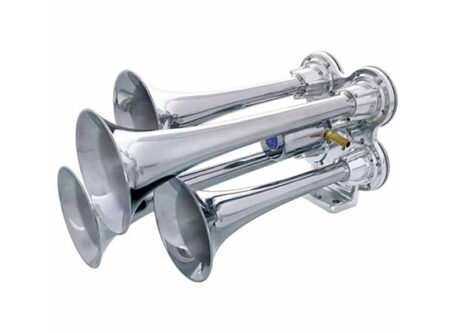Two mega carriers settle in no-poach lawsuit involving nine carriers
Covenant Transport and Western Express have both reached a settlement with a class of truckers accusing several mega carriers of conspiring to a mutual agreement to not poach each other’s drivers, effectively eliminating competition and advancement opportunities for drivers.
On Aug. 20, Covenant, along with its subsidiary Southern Refrigerated Transport, filed a notice of settlement in a federal court in California. Less than a week later, Western Express also filed a notice of settlement. The two settlements follow two others filed by Paschall Truck Lines and Schneider National Carriers.
In 2017, drivers filed a lawsuit against nine carriers, accusing them of colluding to not poach drivers from each other. Those companies include Covenant, CRST International, CRST Expedited, C.R. England, Paschall Truck Lines, Schneider, Southern Refrigerated Transport, Stevens Transport and Western Express.
Agreements between Covenant, Western Express and seven others
According to the lawsuit, the companies conspired to restrain competition in order to suppress compensation of their own workers. Those actions “deprived thousands of their workers of better compensation and deny them opportunities to advance their careers at other companies,” the complaint states.
Plaintiffs claim the carriers entered into a no-poaching conspiracy by agreeing not to hire employees who remain under contract with another trucking company. “Under contract” refers to those who attended one of the company’s driver training schools or offered reimbursement for training courses. Drivers are under contract if they owe tuition, even if they quit or the company fires them before paying it off.
CRST maintains a list called the “Term Student Report,” according to the complaint. Updated daily, the list identifies all drivers who remain under contract. CRST and the other trucking companies allegedly use this list to deprive those drivers of the ability to work elsewhere.
In addition to the list, the carriers’ contracts contain a provision prohibiting drivers from working with other companies until tuition is paid in full. According to court documents, CRST’s contract states “unless and until student has repaid all amounts owed under this agreement, student will neither seek nor accept any work, as an employee, independent contractor or otherwise, from any motor carrier other than (this trucking company).”
When considering hiring new drivers, Covenant, Western Express and the other defendants communicate with each other to determine whether an applicant is under contract with any trucking company. If they are, companies refuse to hire the driver, despite whether the person is unemployed and otherwise meets the company’s hiring criteria.
Plaintiffs state that this practice violates state and federal antitrust laws.
Adding to the conspiracy, plaintiffs claim that the carriers will not release trucking school diplomas and certification of completion to prospective employers until the tuition is fully paid.
The Department of Justice’s Antitrust Division issued its “Antitrust Guidance for Human Resource Professionals” in October 2016. In it, the DOJ warns it “will criminally investigate allegations that employers have agreed among themselves on employee compensation or not to solicit or hire each other’s employees.”
It also states that “an agreement among competing employers to limit or fix the terms of employment for potential hires may violate the antitrust laws if the agreement constrains individual firm decision-making with regard to wages, salaries, or benefits; terms of employment; or even job opportunities.”
Trucking companies call alleged scheme implausible
In their defense, the companies state they do not hire truckers under contract from another because they are under contract. According to the motion to dismiss, case law prohibits interference with a valid contract for one’s own economic benefit.
“A motor carrier cannot interfere with another carrier’s driver contracts, those courts have made clear, without potentially exposing itself to significant liability,” the trucking companies state. “Simply put, that is why each of the defendants independently decided not to hire each other’s ‘under contract’ drivers. Plaintiffs’ allegations to the contrary are implausible.”
In fact, Schneider’s memorandum in support to dismiss points to a lawsuit between Swift Transportation and CRST.
In 2019, Swift was ordered to pay more than $15 million for poaching newly trained drivers from CRST.
The trucking companies note that motor carriers “routinely sue one another (or threaten to) for hiring away ‘under contract’ drivers.”
Addressing the plausibility of the conspiracy, the trucking companies say there is nothing in the complaint that proves a conspiracy.
In June, Paschall Truck Lines filed its notice of settlement, followed by Schneider less than a week later. Covenant, Southern Refrigerated Transport and Western Express followed suit earlier this month. As of publication, no details are available regarding the terms of the settlement. If the courts approves those settlements, it will leave only CRST International, CRST Expedited, C.R. England and Stevens Transport on the hook if the case goes to trial and a jury sides with the truckers. LL
Related stories:









